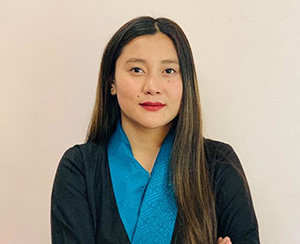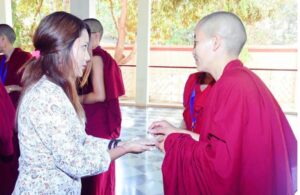 I pursued my education in English Literature from Madras Christian College and Jawaharlal Nehru University, followed by two internship stints teaching at Tibetan Children’s Village School, Upper in 2014 and 2015. My experiences at the school, although very short, affirmed a sense of purpose in me. It made me curious about the thought of being able to serve a wider group of people through community education.
I pursued my education in English Literature from Madras Christian College and Jawaharlal Nehru University, followed by two internship stints teaching at Tibetan Children’s Village School, Upper in 2014 and 2015. My experiences at the school, although very short, affirmed a sense of purpose in me. It made me curious about the thought of being able to serve a wider group of people through community education.
I felt that community education on various social issues can have a direct impact and influence on our younger children, who will grow up to be future contributors for community development. That made me redesign my career plans, and since then my entire goals shifted toward the field of social services.
I am currently working as the Executive Director of the Active Nonviolence Education Centre (ANEC)*. Prior to that, I worked with the Central Tibetan Administration as the Head Consultant for the Tibetan Career Centre.
I have also worked in the non-government sector as the project officer of the Central Tibetan Women’s Association.
My three immediate areas of interest for community development are women’s empowerment, youth empowerment and workforce development. Within the last few years, I have had the opportunity to serve as a counsellor, trainer, and an educator in the exile Tibetan community. I was able to provide training and counselling services to people from schools, vocational institutes and organisations in Tibetan settlements across India. I gained a lot of education and exposure through the journey, mostly from the training I led. It was rousing for me each time I led training, it felt satisfying.

Photo: Tenzin Choezin
Among all the trainings that I led, I have developed a special interest for the Buddhist Nuns Empowerment Programmes because I started my first training for the nuns empowerment programme held at Dolma Ling in 2016, followed by a training in 2017 at Jangchub Choeling in Mundgod and at Menrik Gompa, Solan in 2018. Apart from this, I led training on gender, entrepreneurship development, leadership development, team building, project management and soft skill development.
Through the process, one thing I’ve learned is how being knowledgeable, and having the skill to impart knowledge to others, are two different things. I would often revise my teaching/training methodologies and took part in a lot of training of trainers.
Recently I graduated from a short-term course on women’s leadership for community development from the Coady International Institute in Canada.
Being a trainer or a facilitator is not a conventional profession in the Tibetan community but through the years I have realised that this is what I would like to do. So, I decided to work at ANEC* because it is an educational organisation that provides workshops and develops educational programmes to promote peace and nonviolence. In October 2021 we conducted an online training Participatory Approach to Nonviolence and Human Rights Education for nearly 500 young Tibetan from schools, college and a vocational training institute.
Online training is something I would have never thought of as important years ago when people were more comfortable with in-person sessions, but with the challenges brought by the pandemic, it has helped many of us explore the advantages of technologies in saving time, and easing the constraints of logistics. However, I would still go for in- person training if given a choice to because it allows me to connect with people in real time.
*ANEC is a Tibetan non-government organisation who’s mission is to promote messages of love, compassion, peace and non-violence through education on secular ethos and the teachings of His Holiness the Dalai Lama, and to serve as a platform for the Tibetan and non-Tibetan communities and all Tibet supporters to discuss ideas and develop realistic goals and strategies towards the course of the Tibetan struggle.




 Print
Print Email
Email













